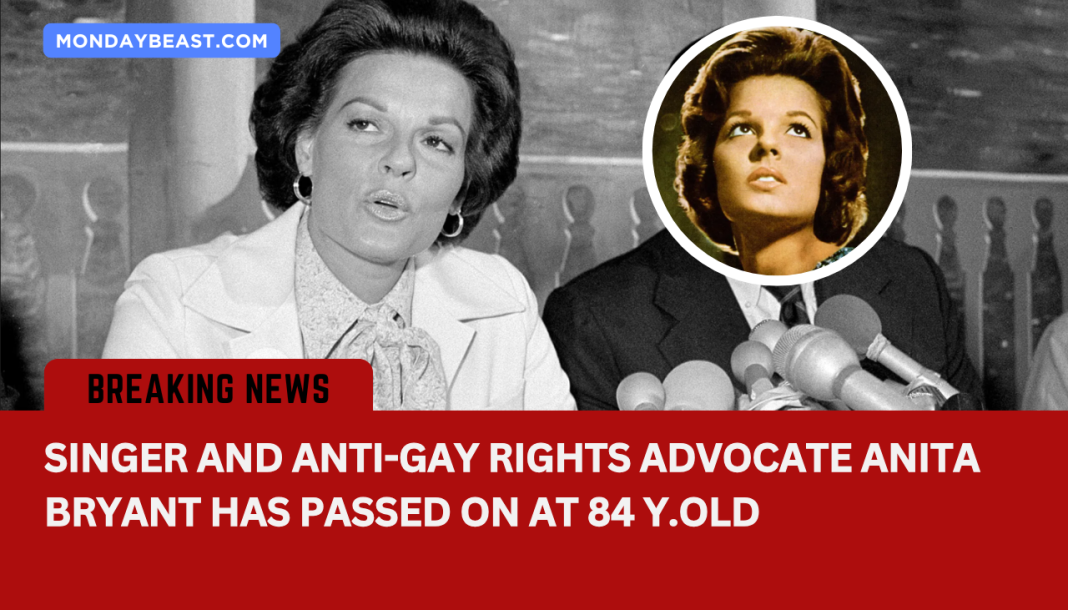The Rise of Anita Bryant
Anita Bryant was born on March 25, 1940, in Barnsdall, Oklahoma. From a young age, she captured attention. She sang, competed, and drew crowds. Her beauty and talent led her to become Miss Oklahoma at just eighteen. That crown was only the beginning. As a rising star, she gained fame through hits like “Paper Roses” and “Till There Was You.” Who would have thought that glittering success would unravel into something darker?
Bryant became a household name. She performed at the White House during Johnson’s presidency. She graced national conventions. As a spokesperson for Florida Citrus, she coined the phrase that still lingers: “Breakfast without orange juice is like a day without sunshine.” Yet, who would’ve guessed that her career would take such a sharp turn?
The Anti-Gay Crusader

In the 1970s, Bryant took a controversial path. She emerged as the face of the “Save Our Children” campaign. This initiative sought to repeal laws protecting LGBTQ+ rights in Dade County, Florida. Her stance against these rights shocked many. In a Playboy interview, she stated, “I got involved only because they were asking for special privileges that violated the state law of Florida.” Did she truly believe this, or was it merely a mask for more profound biases?
As this campaign gained traction, LGBTQ+ activists reacted fiercely. They organized boycotts against Florida orange juice. Shockingly, Bryant claimed she lost around half a million dollars in concert bookings due to backlash. The fight over civil rights escalated. It became personal, a clash of ideals. Were these mere dollars worth the impact on her career and personal life?
Her Final Days
Anita Bryant passed away on December 16, 2024. She left behind a complex legacy, surviving children, and grandchildren. Her family released a statement, focusing on comfort through faith. But how should we remember her? As a talented singer? Or as a figure deeply entwined in a painful chapter of American history?

In retrospect, the question lingers: Can a person be defined solely by the controversial aspects of their life? This is a dilemma many face when they look back on such polarizing figures. While she experienced admiration and criticism, her story remains woven into the fabric of social discourse. As much as Bryant is a symbol, what can her life teach us about the struggle for rights and acceptance?
The Importance of Reflection
When considering Bryant’s life and legacy, it’s essential to reflect. Her journey shows us the diverse paths people take in their beliefs. Some act on love, while others are led by fear or misunderstanding. How can we learn from her story? Perhaps it serves as a mirror, prompting society to be more empathetic and understanding. We can aspire to unite rather than divide.
As we ponder Bryant’s impact, we must ask ourselves: what legacy do we want to leave? In the end, her passing is more than just a news item. It’s an opportunity to contemplate the complexity of human nature and the ongoing struggle for equality. What will our response be to the lessons from her life?




